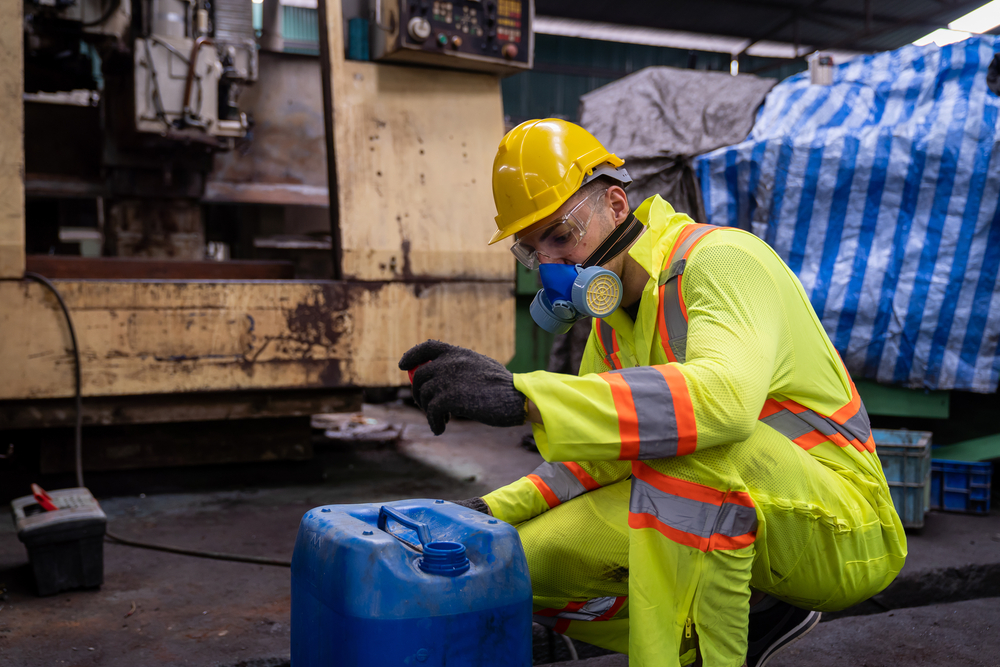The U.S. Chemical Safety and Hazard Investigation Board (CSB) recently released final reports on two concluded investigations and updates on four ongoing investigations.
The CSB’s October 11 final report on a June 2019 fire and explosion at the Philadelphia Energy Solutions (PES) Refinery in Philadelphia, Pennsylvania, identified several safety issues.
During the incident, a corroded pipe elbow ruptured, releasing process fluid into the refinery’s hydrofluoric acid alkylation unit. Over 5,000 pounds of highly toxic hydrofluoric acid was released, and a 38,000-pound vessel fragment launched off-site and landed on the other side of the Schuylkill River. Issues identified in the CSB’s report included the following:
- Mechanical integrity. The CSB determined the pipe elbow that failed had corroded faster than other piping in the hydrofluoric alkylation unit because the steel pipe elbow contained a higher content of nickel and copper than other piping in the unit.
- Failure to verify equipment safety after changes to good practice guidance. When the pipe elbow was initially installed in 1973, the standard set by the American Society for Testing and Materials (ASTM) for carbon steel piping did not specify limits on nickel or copper content. By 1995, the ASTM standard had been revised enough that the pipe elbow no longer met the ASTM’s requirements due to the elbow’s high levels of nickel and copper.
- Lack of remotely operated emergency isolation valves. The CSB found there were no remotely operated emergency isolation valves installed in the hydrofluoric alkylation unit to isolate nearby hydrocarbon sources that could then flow through the failed elbow.
The U.S. Occupational Safety and Health Administration (OSHA) also investigated the accident in Philadelphia. The agency cited PES in 2020 for serious violations of the process safety management (PSM) standard and proposed $132,600 in penalties.
OSHA inspectors determined there were deficiencies in PES’s PSM program, including failing to establish or implement written procedures, insufficient hazard analysis, and inadequate inspection of process equipment for highly hazardous chemicals used in the process.
Sunoco terminal fire
The CSB also issued its final report on the 2016 flash fire and explosion at the Sunoco Nederland, Texas, crude oil terminal, which resulted in burn injuries to seven workers. CSB investigators identified deficiencies in the company’s hot work policies and procedures, as well as the contractors hired to execute the work.
On August 12, 2016, hot work was being conducted by a Sunoco contractor on a section of pipe that contained residual crude oil. The pipe segment was plugged on both ends by another contractor using an isolation device. During the welding operation on the inside surface of a flange, vapor inside the pipe gathered between two of the installed isolation tools and ignited. The ignition caused a buildup in pressure, leading to an explosion at both ends of the isolated pipe.
The CSB concluded that Sunoco’s hot workprocedure did not adequately state that hot work on equipment that currently or previously contained flammable material was not permitted by OSHA or the National Fire Protection Association’s (NFPA) 51B standard.
CSB updates
The CSB also released updates on four ongoing investigations:
- Fatal propylene release and explosion at Watson grinding and manufacturing in Houston, Texas. A January 24, 2020, explosion fatally injured two employees and seriously injured two others.
- Hydrogen chloride release at Wacker Polysilicon, LLC, in Charleston, Tennessee. A November 13, 2020, incident involved a heat exchanger that cracked and released hydrogen chloride (HCl) at the facility during maintenance activities.
- Fatal double cone dryer explosion and fire at Optima Belle LLC in Belle, West Virginia. A December 8, 2020, incident involving dehydration of a chlorinated isocyanurate compound resulted in one fatality.
- Fatal liquid nitrogen release at Foundation Food Group in Gainesville, Georgia. A January 28, 2021, liquid nitrogen release from a freezer at the chicken processing facility resulted in the fatal injuries of six employees and the serious injury of three employees and one emergency responder.
OSHA also investigated the liquid nitrogen release at Foundation Food Group and, in July 2021, cited 4 employers at the facility with 59 violations and proposed penalties totaling $998,637.

